Tekken 7 director on developing for PC and competing in a brave new esports world
An interview with Tekken's Katsuhiro Harada.
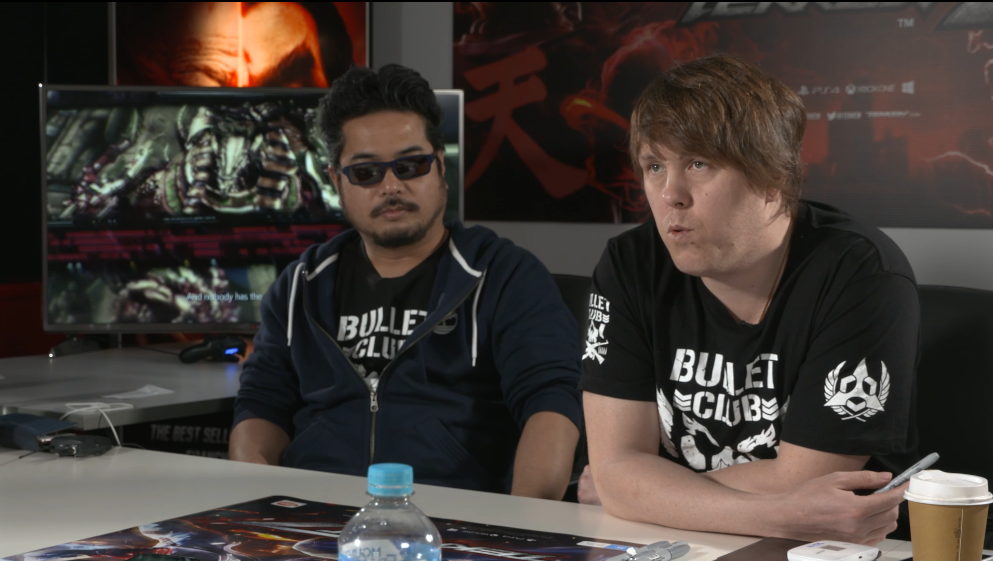
Tekken 7 is the first Tekken instalment to hit PC since the series first launched in Japan in 1994. It's only taken 23 years, but it's no surprise that it's happening now: not only did Street Fighter 5 launch for PC last year but, increasingly, any game with a competitive-bent will usually find its natural home on PC.
Last week I chatted with Tekken director Katsuhiro Harada, who was translated by fellow game designer Michael Murray. I also had some time with the game's story mode and... let's just say it's as hilariously overblown and intense as a Tekken game should be, with a blaring soundtrack and even some unusual third-person shooting sections. I'll write more about that later but, in the meantime, my chat with Harada and Murray is below. Tekken 7 releases June 2.
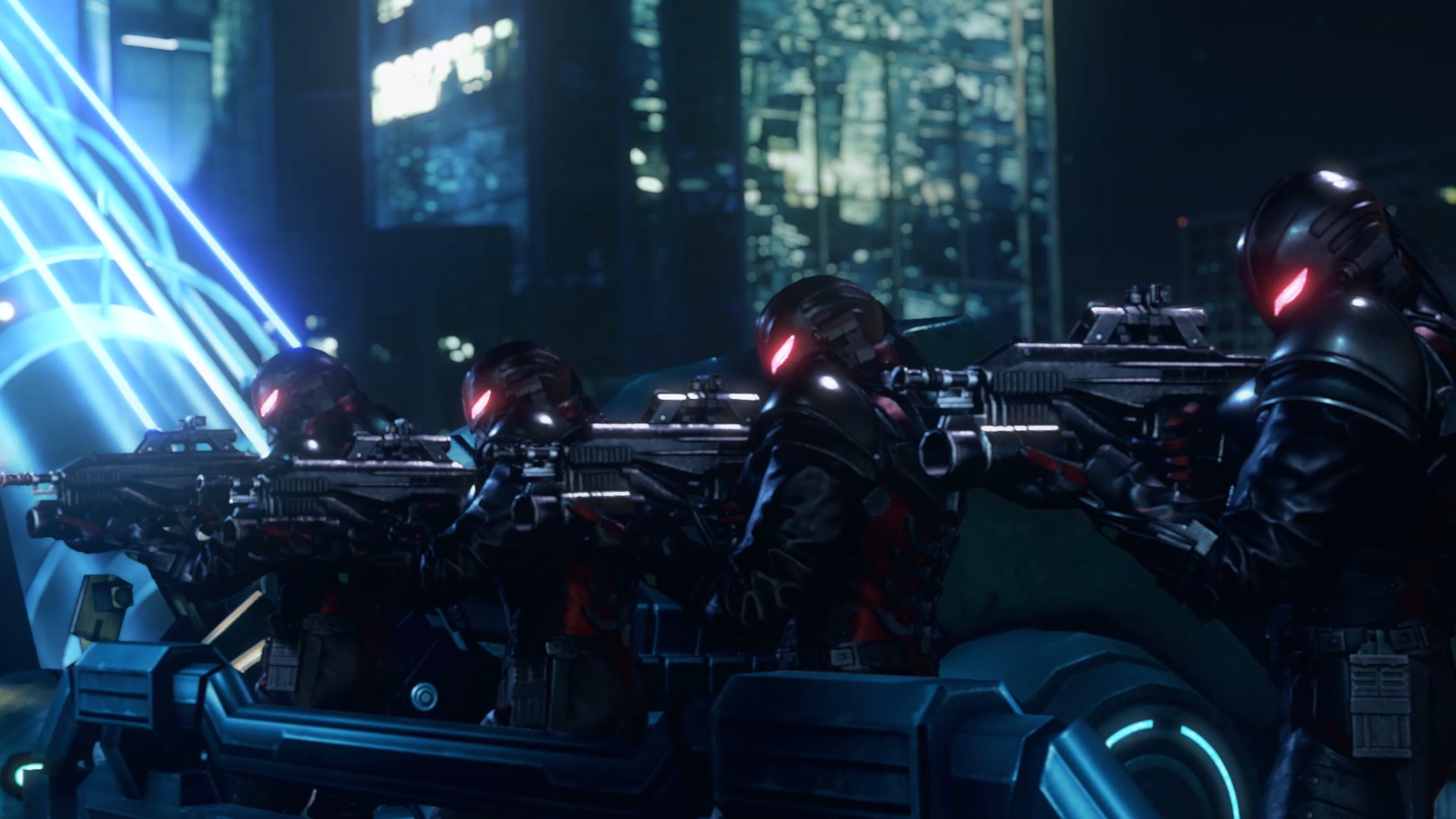
PC Gamer: This is the first Tekken for PC – how are you finding developing for PC?
Harada: There’s a lot of firsts for the series – not only being on PC, but using the Unreal Engine 4. It’s also the first time we’ve not only taken the game to the PC platform, but also developed based on the PC. What that means is that Tekken, up until now, has always been built on the PlayStation architecture as the lead platform, and it was coded for that platform. But this is the first time we've coded on PC, and released that to arcades and consoles. It’s exciting because I’m a big PC player, and so is the director and the main programmer. It’s pretty exciting to be able to bring the game to this platform for the first time.
PCG: With PC you can use the keyboard as an input device. Has that changed the way you’ve developed the game? Have you noticed people playing differently based on the keyboard availability?
Harada: Of course the PC version can be played with a keyboard and mouse, but there haven’t been any radical changes to the game in the way that it’s been played with keyboard, etcetera. The team still feels that if you have the PC version, you can play keyboard by default, but if you plug a controller or fighting stick in, you can have an even closer experience to what other fighting game players are experiencing. But because it is PC, we leave the choice to the player, because your experience on PC changes depending on how much money you put into the hardware, I guess you could say. At the same time, whether you choose to play on keyboard, controller or fighting stick is totally up to the player. They have a lot of choices.
Rather than an FPS, which is usually played with a keyboard or mouse, [Tekken] is probably closer to driving games where people are already used to playing with a controller or even a steering wheel, so they tend to prefer those more.
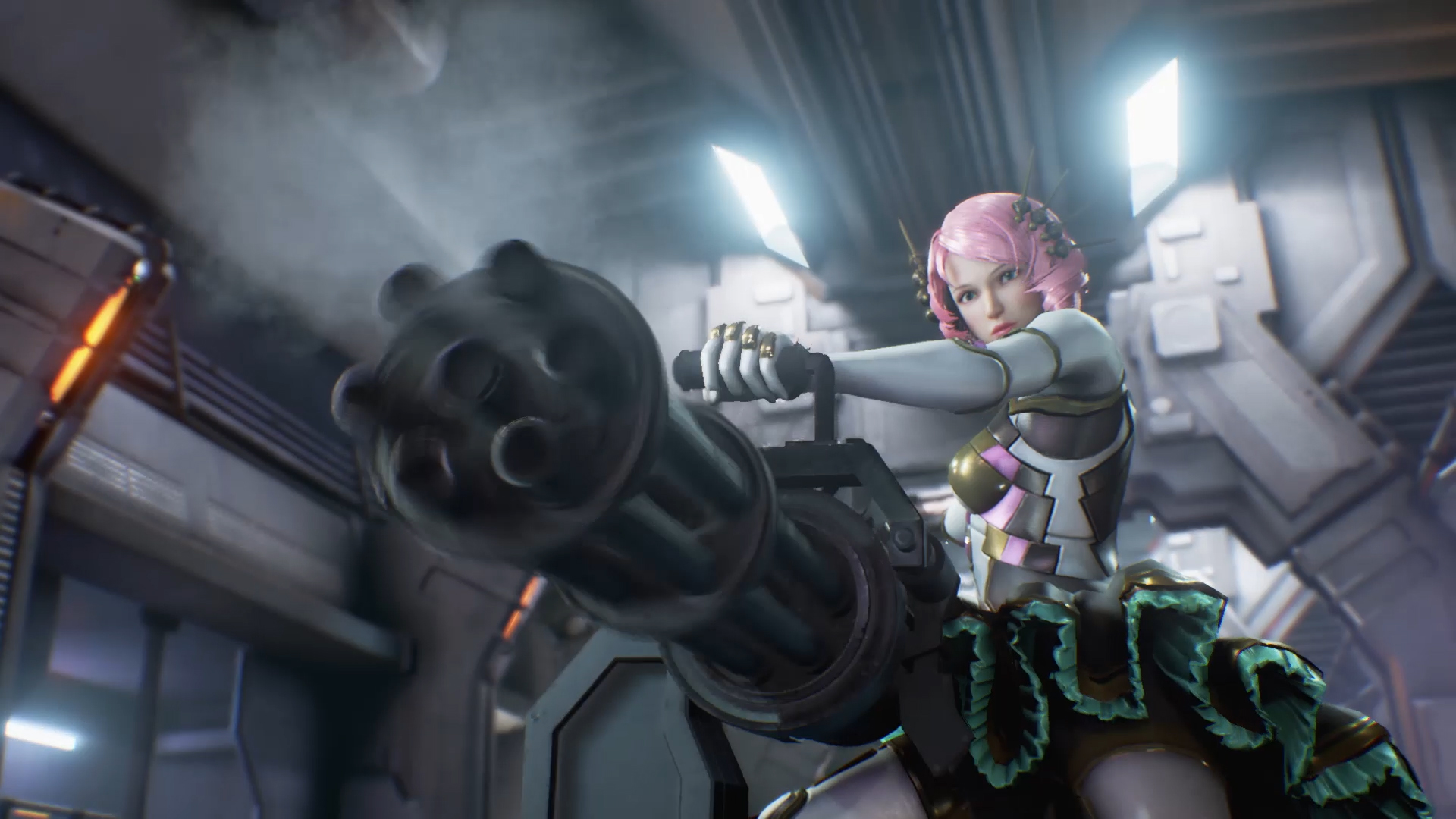
PCG: Since Tekken Tag Tournament 2 released things have changed fairly dramatically in terms of competitive gaming, and also in terms of what’s big in gaming in general. Stuff like Overwatch and League of Legends have aspects of fighting games, for example the character-based format. Have any of these trends in esports and other major competitive games influenced your approach to this Tekken instalment?
Harada: Fighting games are quite different than Overwatch or League of Legends, in the fact that it’s a 1v1 – the player against one other human opponent. You don’t have any team mates or any team work; it falls strictly to you whether you win or lose. Like you said, esports is something that’s starting to gain momentum and the titles as you mentioned are doing very well in that aspect. But with Tekken, even before there was esports there were fighting game competitions, tournaments etc, so that’s probably more of an influence on this Tekken because it’s the same genre. It’s almost like real martial arts: you don’t have a team to rely on, it’s you versus your opponent.
PCG: In terms of direct competition, Tekken formerly had Street Fighter as basically a sole high profile competitor. But nowadays is it more that you’re also competing with other spectator-oriented games?
Harada: There’s not much rivalry at the moment between those types of games and Tekken specifically. If you look at the numbers behind the viewership, the games you mentioned [Overwatch and League of Legends] have a huge viewership – but a lot of that is because of the playerbase. League of Legends is a free-to-play game, the playerbase is huge, therefore the people playing are often also watching. The data we’ve seen from fighting games is that there’s a lot more viewership when compared to players. There’s not as much of a population for fighting games as the free-to-play ones, but you see a larger number of viewers compared to actual players. That's probably because it’s easier to follow – so for someone like me who doesn’t know much about League of Legends, it’s hard to tell who’s winning and what’s going on. But with a fighting game it’s kinda like boxing or judo: it’s 1v1, it’s very physical and it’s easy to tell who is the stronger opponent. That can probably be said for fighting games in general. The reason why there’s more viewership compared to playerbase, is because of how easy it is to follow.
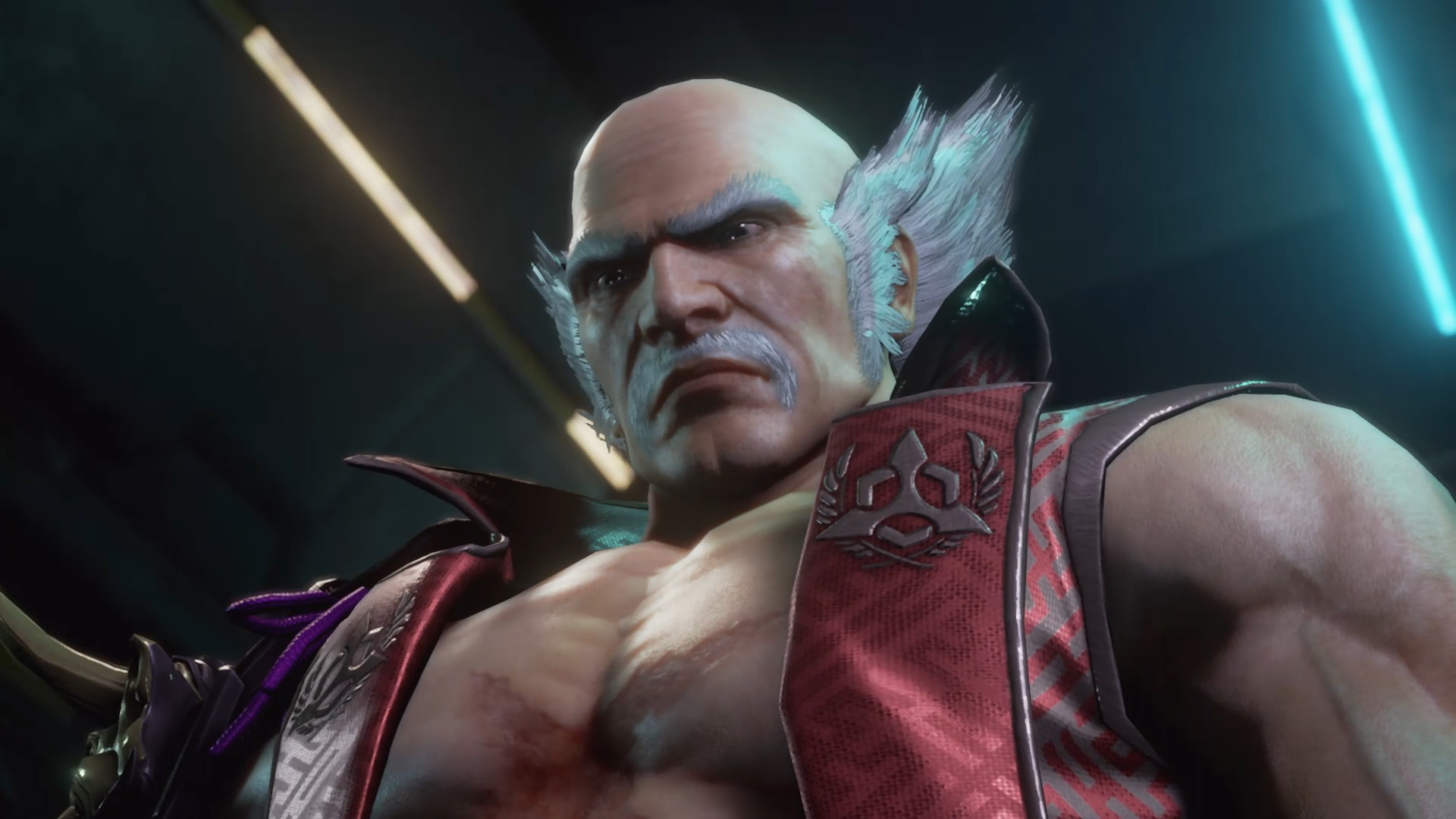
PCG: Street Fighter 5 released last year. I don’t have access to sales figures but it seems the community had a few problems with the game at launch. Has its mixed launch influenced, or changed, your approach to Tekken 7?
Harada: There wasn’t a whole lot of impact, because by the time Street Fighter 5 released Tekken was already quite far into development. There wasn’t really the time to see that launch and then react to it by changing development plans. Tekken was delayed once – we never officially announced the date, though. But that was because Tekken has always had a lot of content, and the plan from the start was to have a certain amount of content, and we weren’t able to achieve that in the original timeline so we received a few more months to finish it up. And also – our understanding of the Street Fighter situation is that they probably planned to release it at a later date and that got moved up for some reason. They did add stuff later. The playerbase isn’t really forgiving when it comes to releasing stuff after launch, compared to at launch.
PCG: Will Tekken 7 act as a platform that will be added to over the years, or will a Tekken 8 be inevitable? In other words, will numbered instalments continue to be the model?
Harada: It’s a bit early to decide: I guess the question comes because Capcom has announced they see Street Fighter 5 as a platform, to add seasons to, etcetera. For Tekken though, it really depends: if the game is released and the players really seem to like 7 and want to see more in the same vein, perhaps that’s something that could happen. Or it could be that we release the game and at some point decide to change a lot of the game so much so that it warrants an 8 or a number change. We have some early ideas for what we’d like to do, but it really comes down to the players and what they want to see.
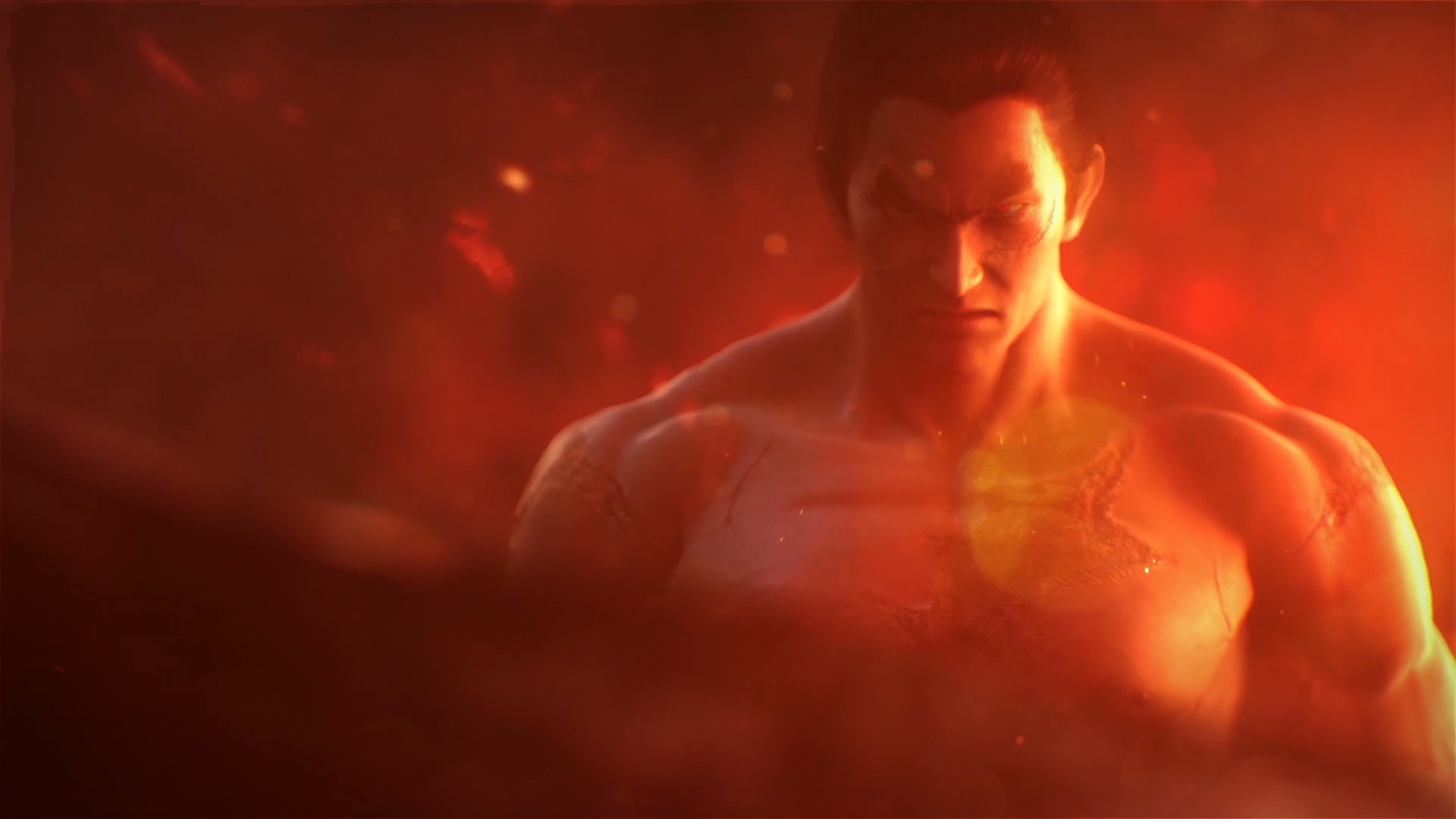
PCG: Fighting games have traditionally had a period at the arcade before they arrive on consoles or, now, PC. How is the arcade scene now in Japan, and do you see it lasting much longer?
Harada: It’s safe to say that the business model is declining in Japan. In the sense that, the audience they’re going after is more children or family and such, more recently. You don’t see the kind of hardcore games now that you saw in the past. Namco has a subsidiary which does arcade, and that did see a profit, because they changed their business model to adapt to the clients I just mentioned, or to the VR things they’re doing more recently. But it’s safe to say that the traditional model of hardcore games in arcades are declining, even in Japan.
PCG: Will there be an alternative way to roll out fighting games, with the decline of that market?
Harada: Tekken started off in the arcades and most fighting games did, so you could even say that the games that only appear on console now – the fighting games – would still, if possible, like to have an arcade release. Not just to please the fanbase, but because it’s another chance to gain revenue before the console release. They had to stop because it’s very severe conditions in the arcades, the operators won’t pick up every fighting game. Tekken is thankfully still able to do that, but who knows how long that will last? That’s one problem we have to solve with the declining situation, with the next Tekken – what do we do for release? That’s one opportunity to gain revenue that you lose. It’s something we’re thinking about.
The biggest gaming news, reviews and hardware deals
Keep up to date with the most important stories and the best deals, as picked by the PC Gamer team.

Shaun Prescott is the Australian editor of PC Gamer. With over ten years experience covering the games industry, his work has appeared on GamesRadar+, TechRadar, The Guardian, PLAY Magazine, the Sydney Morning Herald, and more. Specific interests include indie games, obscure Metroidvanias, speedrunning, experimental games and FPSs. He thinks Lulu by Metallica and Lou Reed is an all-time classic that will receive its due critical reappraisal one day.

